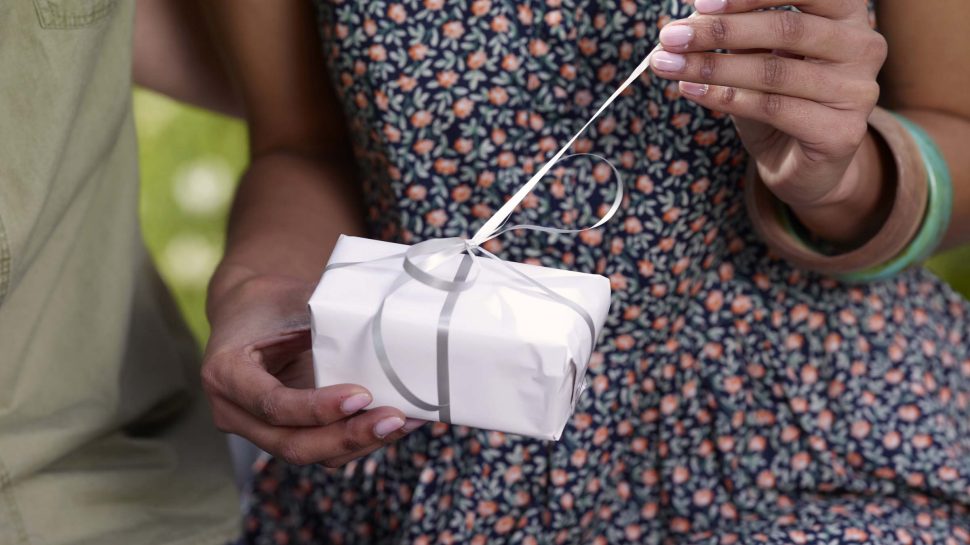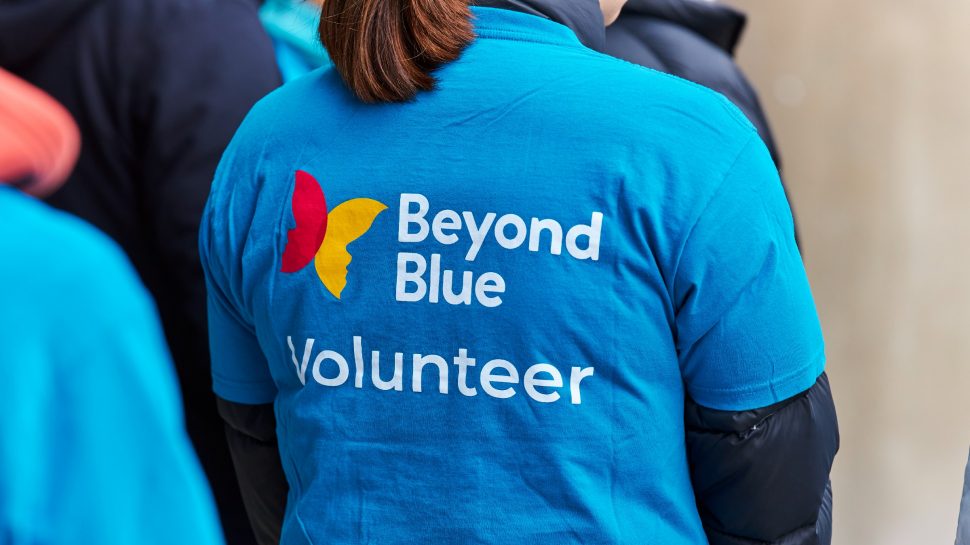5 ways to support your mental wellbeing during the festive season
This time of year may be filled with celebration – but sometimes there’s more to it. Our partner Beyond Blue shares some tips for supporting your mental health during the festive season.

This time of year can be joyful, but it can also be challenging.
With songs of joy and cheers of merriment, this time of year may be filled with celebration – but sometimes there’s more to it.
“The festive season brings a lot of excitement and joy, but it can also be a stressful time,” says Dr Grant Blashki, Lead Clinical Advisor for Beyond Blue.
Feeling Stressed and experiencing Christmas Anxiety is quite common
You may be feeling stressed, anxious and/or depressed during this time because the Christmas season and New Years can give rise to a crash of multiple stressors. These can include: Environmental stressors like feeling rushed and out of time with having to attend numerous social engagements. Financial Stressors from purchasing gifts, attending events, or even time off work impacting income, and relationship pressures that come with the obligations with family, friends, and loved ones.
To reduce any potential stress and anxiety you might be feeling, we encourage you to plan some ways to make this festive season one that works well for you. We partner with Beyond Blue to connect more people with mental health information, and each other. Here they share some ideas to get you started this holiday season.
1. Start a new tradition
Traditions can help you feel like there is continuity and a sense of connection through family customs, even if they’re simple little rituals that become part of the festive season.
“Humans are social creatures, and there’s something about a celebration and a tradition that helps to form our identities,” Dr Blashki says.
But even if you don’t have family traditions, perhaps you can start some new ones that can make the event special for everyone.
“Things can evolve and values and traditions can change. It’s like if Grandma has always done all the festive cooking, but she’s getting older and everyone now brings a plate,” Dr Blashki explains.
“Financial distress can also be an issue for people at this time of year, so you could start a tradition of presents just for children, or a dollar limit on gifts.”
If you’re keen to change how you and your loved ones celebrate the festive season, consider a new tradition that encourages connection. Dr Blashki suggests, “You might start a new tradition of having everyone put their phones on aeroplane mode for two hours, or pulling out the old photos for the kids to have a laugh at hilarious old hairstyles and fashions.”
2. Remember that self-care isn’t selfish
When you’re thinking about how to make others happy or focused on doing the things others expect, it’s tempting to think of self-care as selfish. This isn’t true.
It’s incredibly important to take care of yourself at any time, and particularly when things are feeling challenging. “Pace yourself: this time of year can be a bit of a marathon. It’s okay to take a bit of a break from it all sometimes,” Dr Blashki says. “So if you’re at a family function and it all feels a bit much, go for a little walk and get some fresh air.”
“See if you can spread the load a bit. If you’re the one doing a lot of the organising, delegate and ask others for help so that it’s not all on you.”
It’s also a time of year when loneliness can hit those of us who aren’t with loved ones, and it’s important to take care of yourself through these feelings. “If you’re going to be on your own during the festive season, try to make a bit of a plan. Maybe make a great music playlist, choose some good movies, make yourself a beautiful food pack for the day, and schedule some nice things like a walk and a video call with the people you love,” says Dr Blashki.
Having these plans can help those lonely feelings to ease.

Giving your time or an act of kindness to others can help everyone involved.
3. Give back to others
There are a lot of people who need help during the festive season. The great news is that reaching out and giving them a helping hand, an act of kindness, or some of your time is good for everyone involved.
“There’s a lot of evidence about giving back being good for us,” says Dr Blashki. “It’s good for the person you’re helping or you’re being kind to, it helps you as the person who’s doing something nice for someone, and it pays it forward to build social capital.”
Giving back to others can help to get you out of your own head if you’re finding this time of year difficult. Consider how you might put a smile on someone’s face.
“It doesn’t have to be a grand gesture or expensive. It can just be small ways you’ve helped someone and they’ve really appreciated it,” Dr Blashki says. “For example, if you have a rich family life or a broad friendship group, have a look around you and invite someone along who might otherwise be alone to come and join you.”
Take some time to reach out and check in with the people you care about this holiday season – it could be the greatest gift you ever give. Because when we connect, we feel better.

Giving yourself something fun to do, like bringing a cricket set to a family gathering, can be helpful.
4. Give yourself an enjoyable focus
Sometimes, the best way to have an enjoyable festive event is to plan some activities.
Dr Blashki suggests bringing along something fun to do. “Make a focus for the day, like some games or sports. Bring along a cricket set or make a treasure hunt for the kids, so you can have a few activities going on,” he says.
The festive season can also mean spending more time than usual with family members you may not get along with, so it’s also worth coming up with some conversation ideas ahead of time. Dr Blashki says, “Think of a few good topics to talk about if you’re catching up with relatives you don’t see eye-to-eye with. Pick a couple of neutral topics – what you’ve been watching on TV or where you’re planning to go on holidays – that will keep things light.”

The healthy habits you usually use to feel good can help over the festive season.
5. Know your stress signs and have a plan for how to cope
Generally, the Christmas season brings similar issues at the same time of year, whether they be financial strain, relationship issues or other personal challenges. If you think this might be a difficult time for you, it can be helpful to make a plan for how you can cope.
“Look out for some red flags,” Dr Blashki says. “Those might include ruminating about things or catastrophising, especially if those thoughts are disturbing your sleep.”
You might like to consider the challenges you may face over the coming weeks and come up with ways for easing any difficult feelings.
“Having a plan can diminish the stress,” says Dr Blashki. “Sit down and think about how you’ll make it work best. It might be that you manage your expectations so you’re not assuming everything will go perfectly. You could also put time limits on things, so you’ll go to an event for an hour. And remember that alcohol isn’t helpful.”
It’s especially important to be kind to yourself during this time.
Dr Blashki says, “All the usual stress management things are really good: exercise, getting enough sleep, and using some mindfulness exercises to help yourself stay calm.”
If you’re having trouble coping, reach out to your support networks such as family or friends. You can also call the Beyond Blue Support Service on 1300 22 46 36, or join the active Beyond Blue forums.
If you’re in a crisis or at risk, call Lifeline on 13 11 14.
Australia Post is proud to support our partner Beyond Blue. Together, we aim to connect more people with mental health and wellbeing resources and services, and each other—because when we connect, we feel better.
Beyond Blue provides free information, advice and support to help all people in Australia achieve their best possible mental health. For more information, visit the Beyond Blue website.
If this article has raised any concerns for you there are services which can help. Here are some organisations you can speak to:
Beyond Blue – Trained mental health professionals available 24/7. Call 1300 22 2636 or visit the Beyond Blue website.
Lifeline – 24/7 crisis support and suicide prevention. Call 13 11 14 or visit the Lifeline website.
Kids Help Line – 24/7 phone and online counselling service for young people aged 5 to 25. Call 1800 55 1800 or visit the Kids Helpline website.



